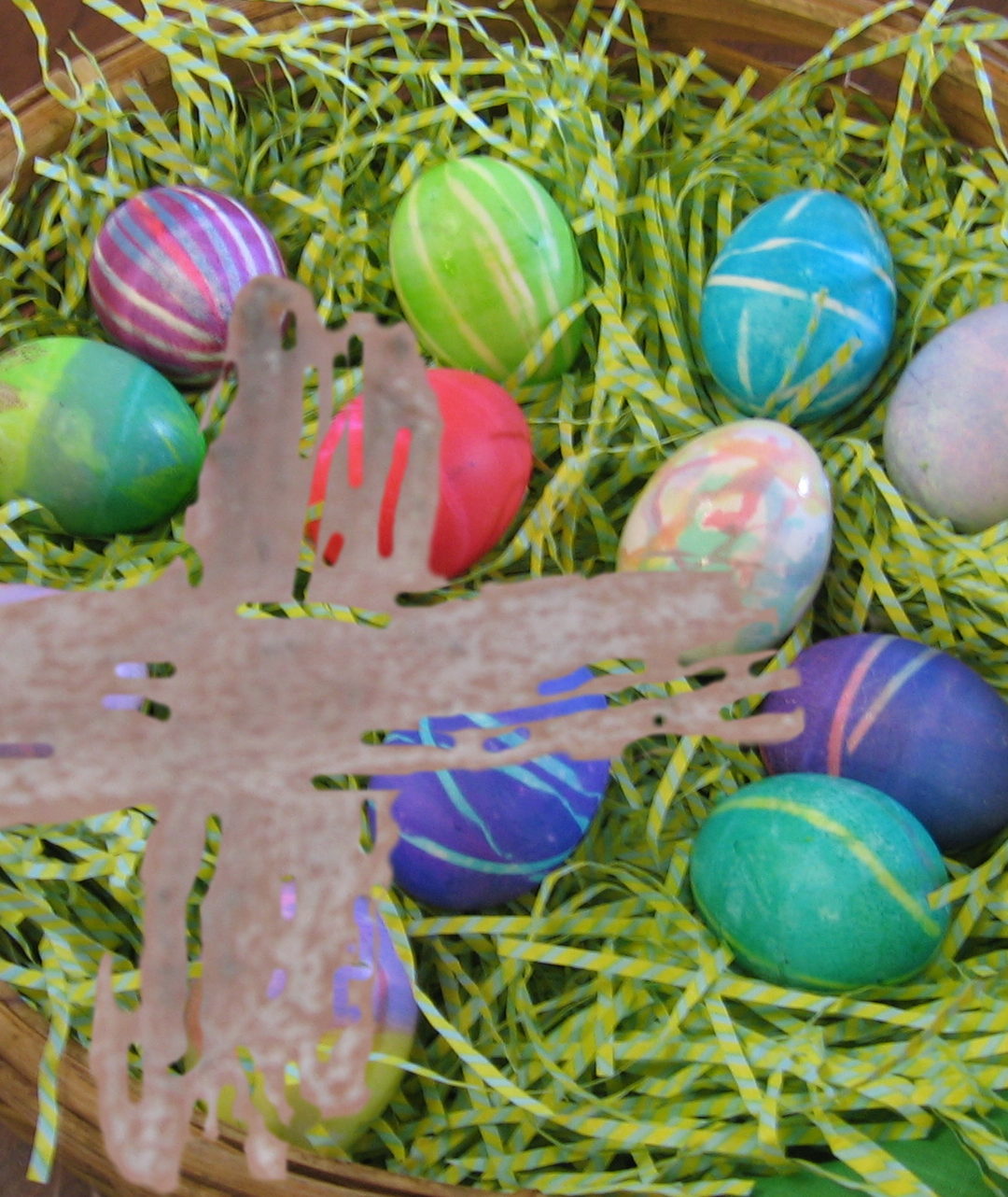As we continue to prepare our hearts to celebrate the Resurrection, my friend, writer Suzanne Marshall, author of two studies for Lent, joins us with a guest blog about how to awaken our hearts to Easter.
As hard as it is to believe, Easter is just around the corner. Spring clothes, baskets and family gatherings come to mind. These colorful scenes, though, are followed by more solemn ones. I stand with the congregation Easter morning, trying to rev my heart during the alleluias, while deep down I know that I’m not all that joyful and thankful. What happened to my soul’s love?
In Luke 7, we read about Simon, a church leader, who must have allowed his love for God to wane as well. Simon invites Jesus to eat dinner with him at his house, and while the two men recline at the table, a prostitute stands behind Jesus. She clasps an alabaster vial of perfume and weeps. Tears course down her cheeks and fall onto Jesus’ feet. She drops to wipe her tears with her hair, and so moved, she pours the perfume and adds her kisses as she washes his feet. Simon secretly reasons that Jesus couldn’t be a prophet, because he obviously isn’t savvy enough to know that the woman with her hands all over his feet is one of those kind of women.
Jesus knows Simon’s thoughts and leads his host through a parable, to help Simon see himself and the woman more accurately. Jesus’ story unfolds. Two people owed money to a banker. One owed fifty coins and the other owed five hundred. The banker tore up both loans, forgiving the debts.
“So which of them will love him more?” Jesus asks.
“I suppose the one whom he forgave more,” Simon answers (Luke 7:42-43).
Then, turning toward the woman, Jesus says to Simon,
“Do you see this woman?
I entered your house. You gave me no water for my feet, but she has wet my feet with her tears and wiped them with her hair.
You gave me no kiss of greeting, but from the time I entered she has not stopped kissing my feet.
You did not anoint my head with oil, but she has anointed my feet with perfumed oil.
Therefore I tell you, her sins, which were many, are forgiven, thus she loved much; but the one who is forgiven little loves little” (Luke 7:44-47).
Did you catch that Jesus turns to the woman, not Simon, as he replies to Simon’s answer? Jesus extends love and forgiveness to the woman in his gaze, the same love that liberates her and moves her to adoration. Jesus does not look down at Simon or shake his finger at him but asks if he saw the woman. Does Simon see her as a person, with worth? Does he see her love in action, love given because of love received? Jesus points out what Simon cannot see, that he is sinful and needs forgiveness as much as the prostitute does. The difference between Simon and the woman is that she recognizes her sin, but Simon doesn’t recognize his.
The reason my love lags on Easter is because, like Simon, I have lost sight of the extent of my sin and of God’s astounding love in forgiving and accepting me. How can I recapture my gratitude and celebrate Easter in sincere joy? Like the early fathers and others through the centuries, I can prepare my heart for Easter. I begin weeks in advance, just as I prepare for Christmas during Advent. The season of Easter preparation is called Lent. Many Protestants are returning to Lent, not to earn salvation, but to appreciate salvation.
During Lent, we pray and fast. A fast may be a limitation of food or drink or a giving up of some other daily part of our lives. Some people choose to take up an action instead of abstaining from something. Practicing Lent with these intentions of giving-up or taking-up engages our bodies; in this way, our soul is powerfully awakened to attend. Just as Jesus pointed to the woman’s actions to help Simon recognize his need, our Lord uses our intentions as tools to reveal our need and his fathomless love.
Do you yearn to greet Easter with the joy of first love? Consider engaging in Lent this year. Though the season began last Wednesday, it’s never too late to dive in. Let us sing joyful alleluias to our King.
Note: Four years ago, I sought a Lenten devotional but did not find one that met my needs. The Lord then prompted me to write the lessons He would teach me during Lent. The next year, I combined these lessons into a devotional, Running to the Empty Tomb: Finding the Joy in Easter. Many people who purchased the devotional were unfamiliar with Lent, so I also wrote and led A Bible Study for Your Easter Journey. The study corresponds with the devotional and more fully explains participation in Lent. An Answer Guide with suggested answers to the Bible study may be viewed for free on my website, SuzanneDmarshall.com, under the Publications tab.
Photo by Suzanne Marshall



